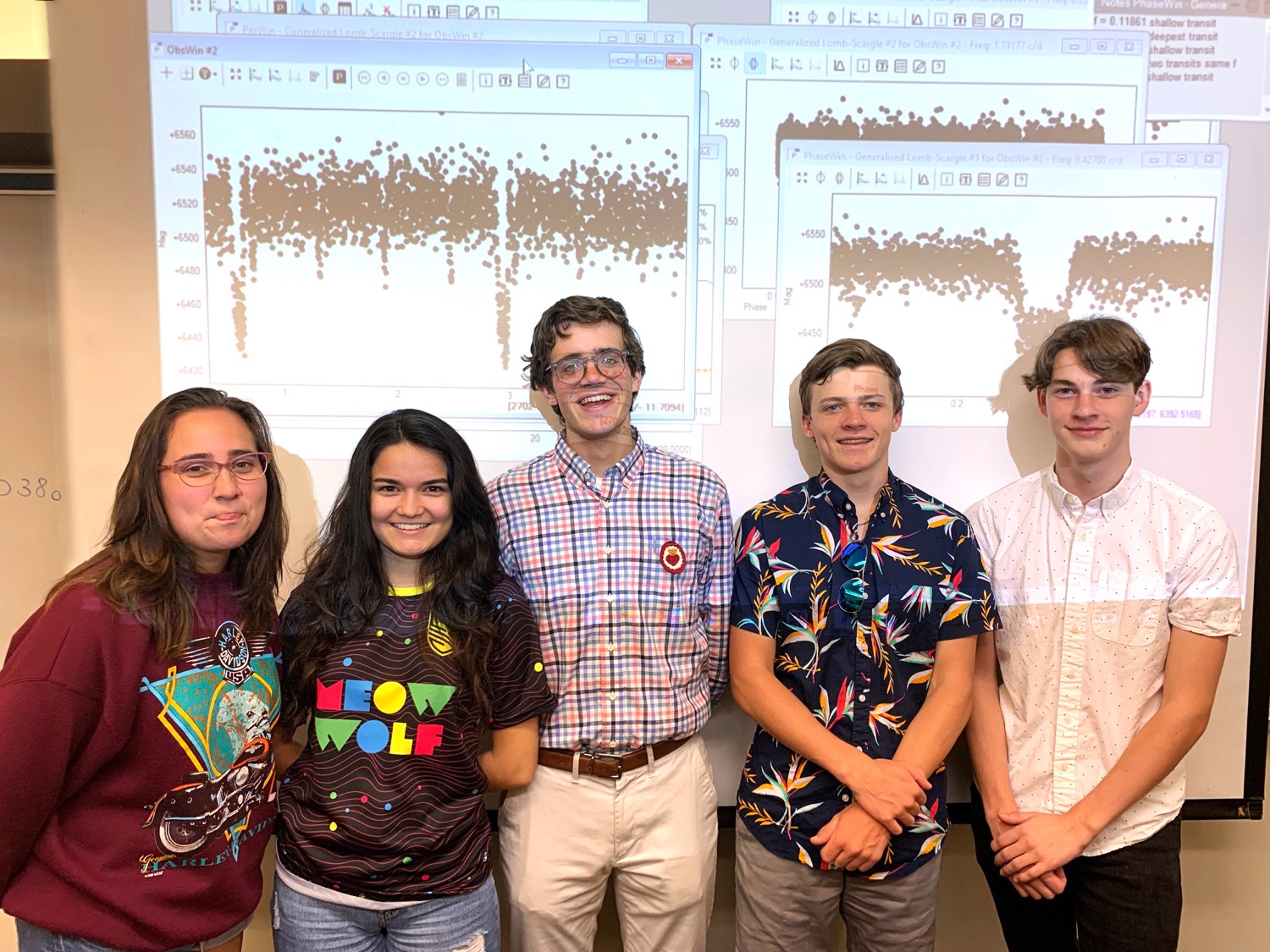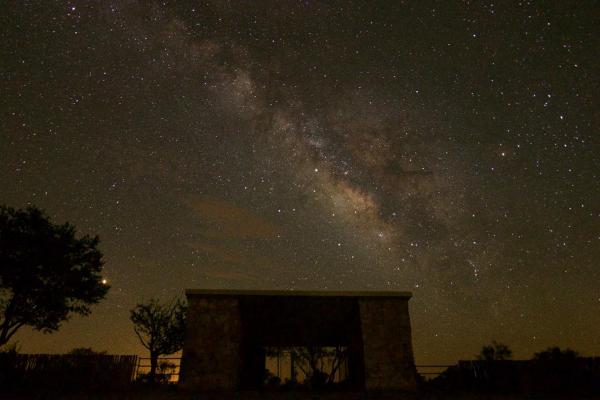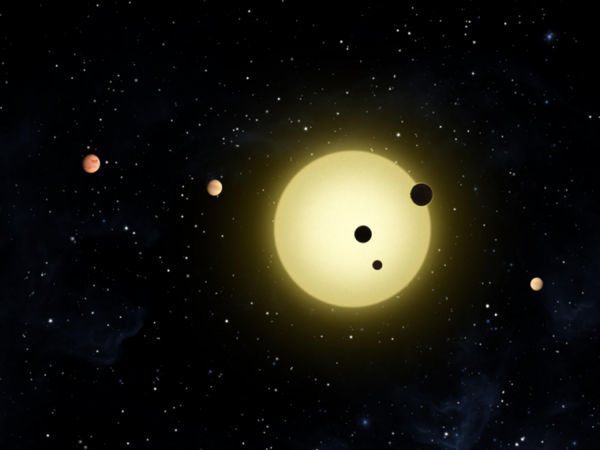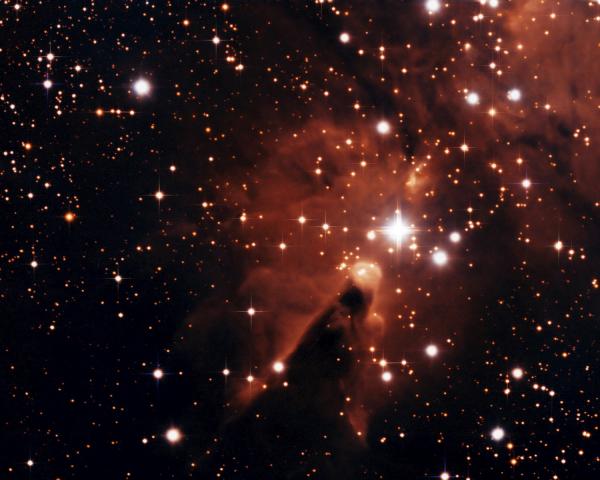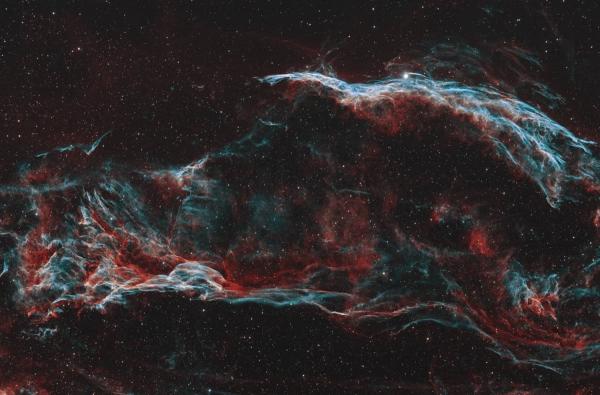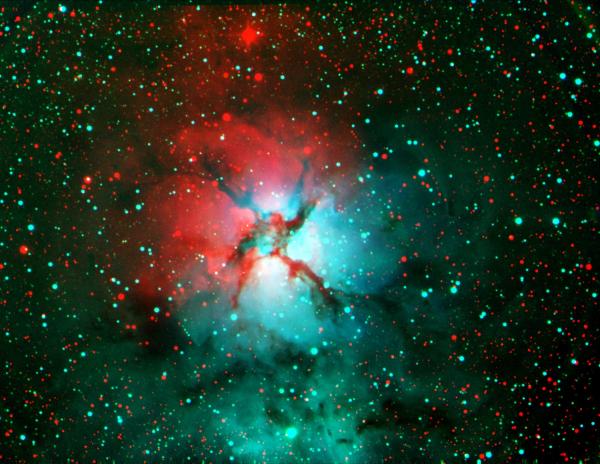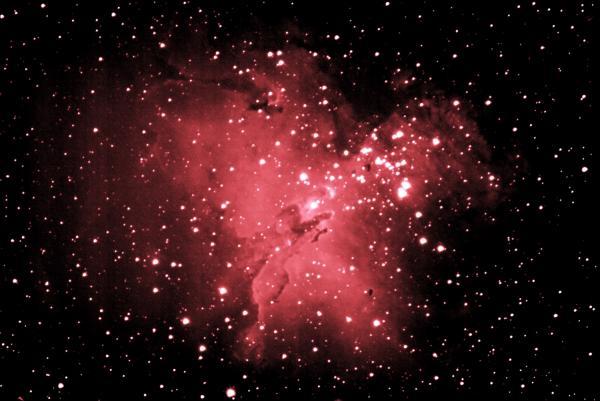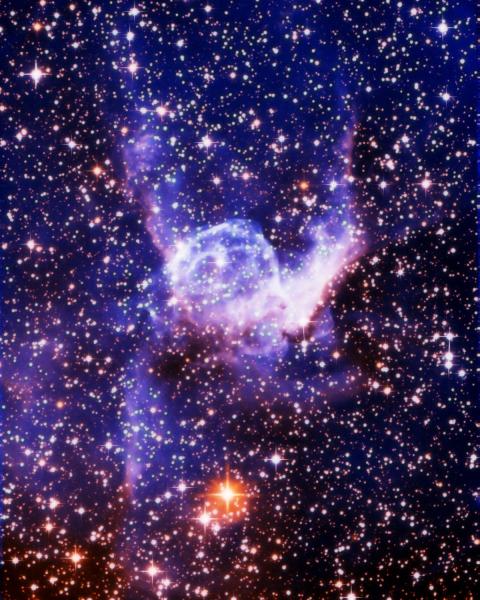 Menu
Menu
The University of Dallas has, for the past 15 years, quietly and with steadfast determination been developing a sophisticated astronomy/astrophysics program under the direction of Professor of Physics Richard Olenick, Ph.D. During this period, UD developed a working relationship with the University of North Texas that led to a partnership in the sharing of teaching resources and hardware instrumentation and, most recently, to the creation of the Swenson Observatory for Astronomical Research (SOFAR). With the construction of this observatory, UD students have a resource that very few undergraduate institutions possess.
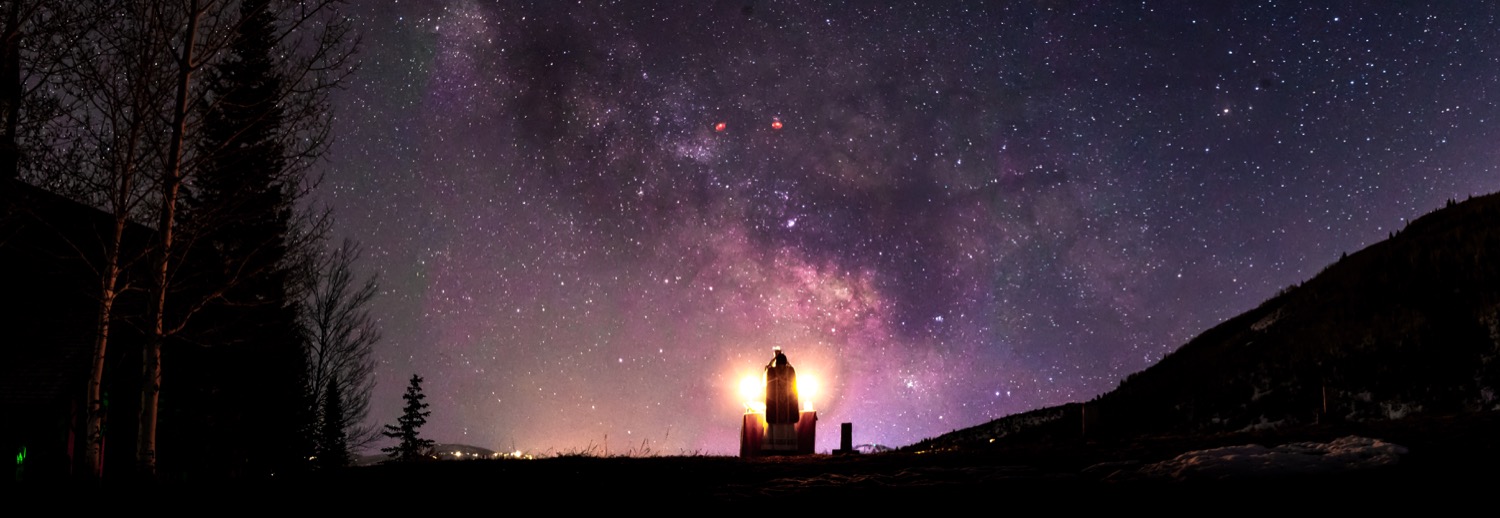
The SOFAR site is not only readily accessible but has a very dark sky, one level up from the darkest spot in the U.S. This photo of the night sky taken at the site exemplifies the clarity with which one can observe the stars.
The primary focus of the UD astronomy and astrophysics program has been in analysis of cataclysmic variable stars and exoplanet searches, which use similar observational techniques. A cataclysmic variable is a “vampire star” consisting of a close binary system in which a white dwarf accretes—feeds on—matter from a normal star. Typical separations between the white dwarf and companion stars are equivalent to the diameter of the sun, and the resulting orbital periods range from one to six hours. Exoplanets are planets orbiting other stars in our galaxy, the Milky Way. Recently NASA announced that more than 5,000 exoplanets have been confirmed.
UD students and faculty have carried on a comprehensive campaign to search for new exoplanets at various observatories and with various instruments. UD also monitors existing exoplanets because they need to be watched for changes in their circumstances, and professional astronomers do not have the time to do this.
At an observatory in Colorado, UD students carried on search activities for a number of years during the summer in the beginning years of the program.
A major hurdle to successful research is obtaining enough observing time. Research success is strongly tied to how much data you can obtain. In the early years of the UD program, students would have to travel to places like the top of a mountain in the summer and sit out in the cold all night to get data. And they would have to haul the equipment to and from the observing site. Or they would have to network with other universities and try to arrange for time and equipment access to observe.
We are entering what some call the third industrial revolution—and it is robotics. Nowhere is this phenomenon more apparent than in the field of astrophysics and astronomy.
Very soon, astronomers will never stare into an eyepiece or sit at a telescope. Advances in robotically controlled telescopes and digital instrumentation systems have made the “remote observatory” not just a possibility, but from now on, a necessity. Finding a very “dark sky” site for observing is a difficult job these days. Light pollution has spread over the United States to the extent that there are very few good spots from which to observe.
In 2017, UD researchers convinced the Swenson Cattle Company owners to build a remote observatory in the middle of their 40,000-acre ranch; the dark skies there are only exceeded by those in far West Texas, even though it is a three-hour drive from DFW, northwest of Throckmorton. Subsequently, SOFAR was created for the purpose of furthering education and research in astronomy/astrophysics at all educational levels.
Additionally, UD has installed a wideangle survey telescope and a 16-inch telescope for the research programs they pursue. This observatory, funded by the Swenson family, is totally robotic and controlled via the internet from any location.
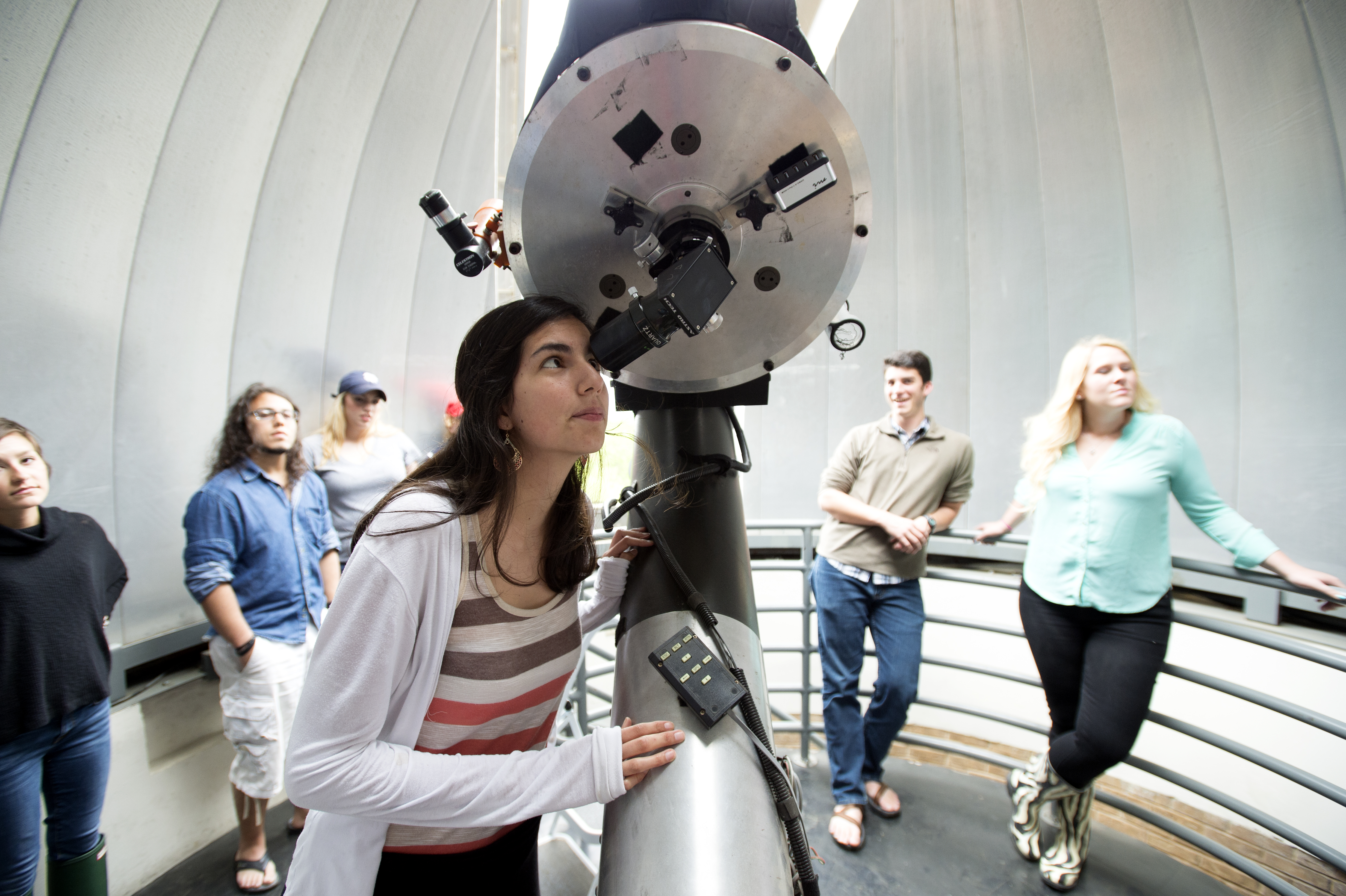 |
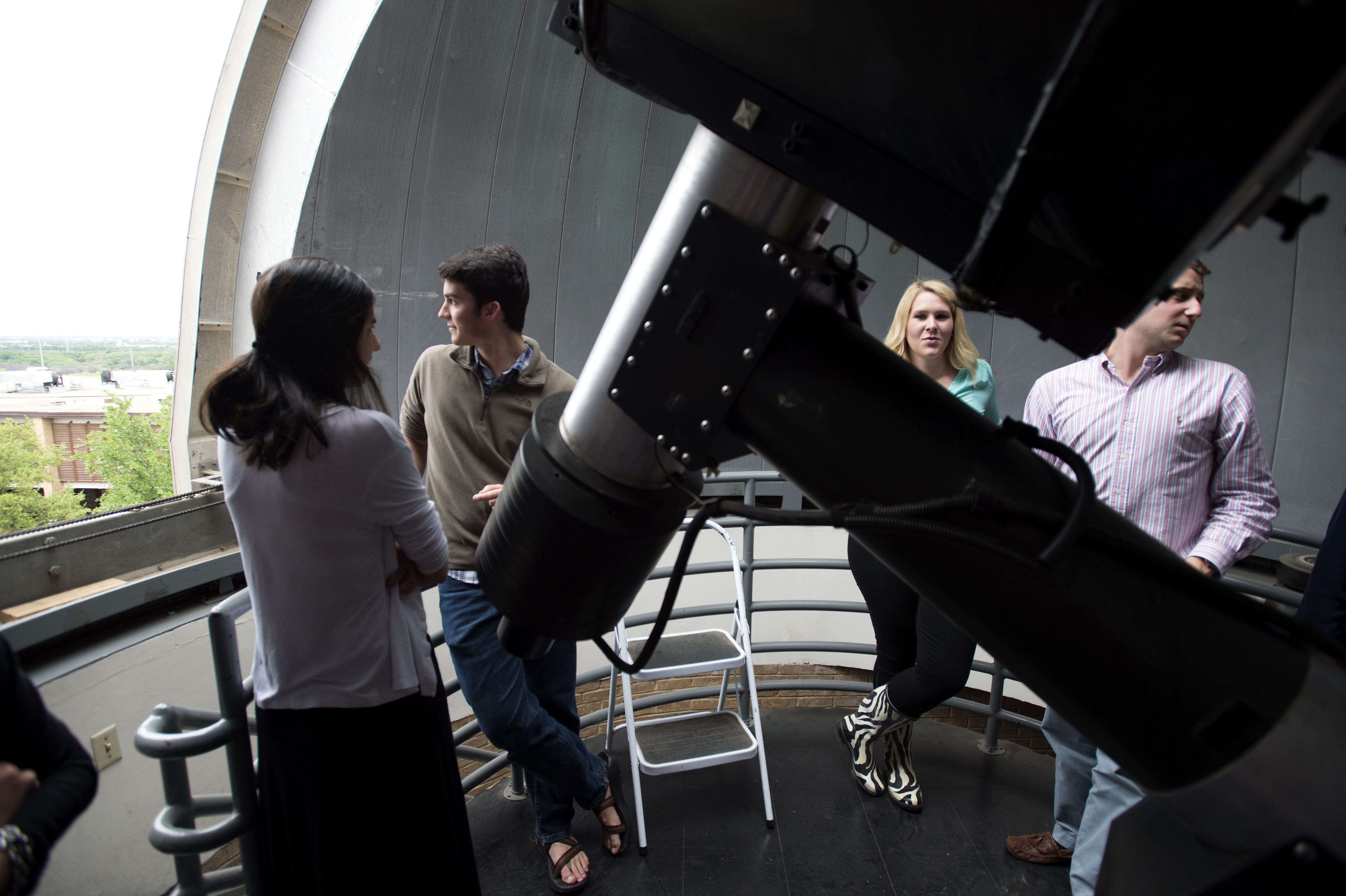 |
The University of Dallas Department of Physics and Astronomy also has a long history of research and reaching out to young people, including those from low-income families and special-needs children in K-12. One such program was a summer science class for underprivileged kids from the Promise House in Dallas. The six-week STEM class was held in Dallas, during which the kids worked and performed laboratory experiments. Afterward the kids were taken to Colorado, where they hiked, panned for gold, rode on ski lifts and went on long sightseeing trips.Currently, the Physics Department is conducting summer research with students from three high schools in the Dallas area: The Highlands School, Cistercian College Preparatory School and Great Hearts Academy of Irving.
The students meet with Olenick for three hours twice a week and are using SOFAR telescope data and NASA Transiting Exoplanets Survey Satellite (TESS) data to analyze and search for new exoplanets. At this time, there is a significant chance that these students have found several new multiple exoplanets orbiting perhaps some binary star systems.
UD Astronomy is supported by the Donald A. Cowan Institute of Physics and The Joe Neuhoff Fund For Astronomy Research. The Physics Department has supervised 21 undergraduate theses in astronomy since 2011; the following are the most recent:
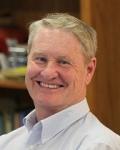
Arthur Sweeney is the physics laboratory manager at UD. He is a senior computer systems and electrical engineer who has a passion for astronomy and extensive experience in the aerospace industry.
